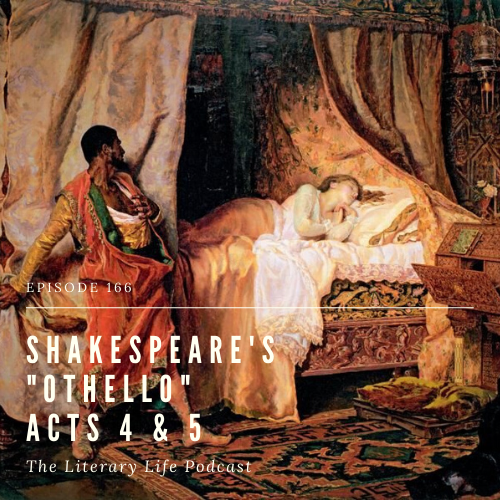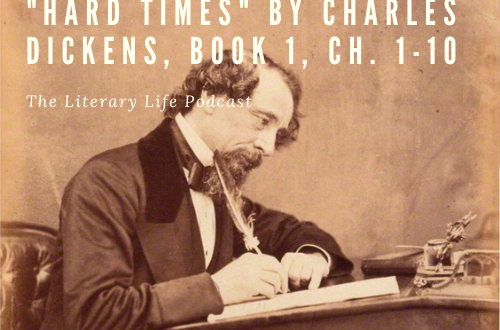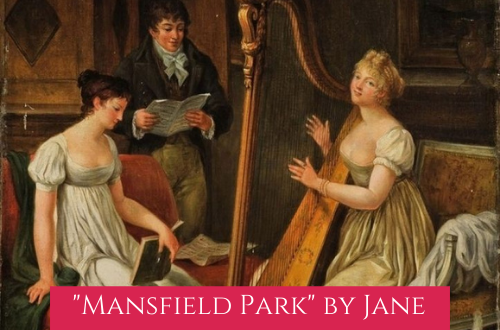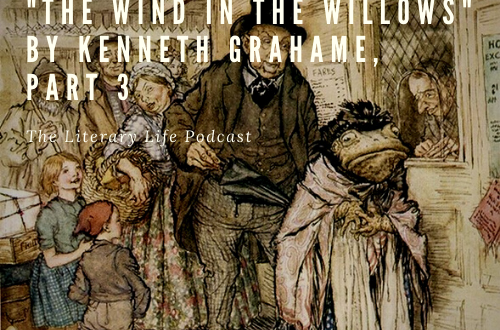
Episode 166: Shakespeare’s “Othello,” Acts 4 & 5
We are back on The Literary Life Podcast this week to wrap up our series on Shakespeare’s Othello with a discussion of Acts 4 and 5. Angelina, Cindy and Thomas begin the conversation looking at how the avalanche that began at the climax in Act 3 now continues until the curtain drops. Beginning with her commonplace quote, Angelina expands on the idea that this play uses images of the temptation and fall of man. Thomas reads from Othello’s speech in illustration of how disordered he has become. Once again in these acts we see Desdemona’s innocence and goodness. Iago’s parallels to the storm and to Satan are further illustrated, as well. Cindy, Thomas, and Angelina share their several thoughts on the ending of the play.
Register now for our 5th Annual Literary Life Online Conference coming up April 12-15, 2023, Shakespeare: The Bard for All and for All Time. Get all the details and sign up today at houseofhumaneletters.com.
Listen Now:
Commonplace Quotes:
It is observed that “a corrupt society has many laws”; I know not whether it is not equally true that an ignorant age has many books. When the treasures of ancient knowledge lie unexamined, and original authors are neglected and forgotten, compilers and plagiaries are encouraged, who give us again what we had before, and grow great by setting before us what our own sloth had hidden from our view.
Samuel Johnson, from The Idler, Essay #85
It is very important again that the child should not be allowed to condemn the conduct of the people about him. Whether he is right or wrong in his verdict is not the question. The habit of bestowing blame will certainly blunt his conscience and deaden his sensibility to the injunction “Judge not, that ye be not judged.”
Charlotte Mason, from Home Education
If the precise movement of Eve’s mind at this point is not always noticed, that is because Milton’s truth to nature is here almost too great, and the reader is involved in the same illusion as Eve herself. The whole thing is so quick, each new element of folly, malice, and corruption enters so unobtrusively, so naturally, that it is hard to realize we have been watching the genesis of murder. We expect something more like Lady Macbeth’s “unsex me here”. But Lady Macbeth speaks thus after the intention of murder has already been fully formed in her mind. Milton is going closer to the actual moment of decision. Thus, and not otherwise, does the mind turn to embrace evil. No man, perhaps, ever at first described to himself the act he was about to do as Murder, or Adultery, or Fraud, or Treachery, or Perversion; and when he hears it so described by other men he is (in a way) sincerely shocked and surprised. Those others “don’t understand.” If they knew what it had really been like for him, they would not use those crude “stock” names. With a wink or a titter, or in a cloud of muddy emotion, the thing has slipped into his will as something not very extraordinary, something of which, rightly understood and in all his highly peculiar circumstances, he may even feel proud. If you or I, reader, ever commit a great crime, be sure we shall feel very much more like Eve than like Iago.
C. S. Lewis, from A Preface to Paradise Lost
Desdemona
by George Gissing
I see thee, Desdemona, pale and cold
As the pluck’d lily that uncared for dies,
Thy lips the seat of silence, and thine eyes
Deserted shrines of chastity; behold,
Their lamp is quenched, their oracles untold;
Calm is thy bosom, which no more shall rise
And fall with love’s sweet rapture or sad sighs,
And thy hands clasp’d in prayer shall ne’er unfold
Silent and still; yet in that silence speaks
A voice more eloquent than passion’s tongue,
The mute reproach upon thy innocent face,
Which chases from his breast who did thee wrong
The spectre of blind wrath, and in his place
Despair, for all thy sorrows vengeance wreaks.
Books Mentioned:
Othello by William Shakespeare
The Elizabethan World Picture by E. M. Tillyard
The Soul of Wit by G. K. Chesterton, edited by Dale Ahlquist
The Meaning of Shakespeare by Harold Goddard
Ignatius Critical Editions of Shakespeare plays
Support The Literary Life:
Become a patron of The Literary Life podcast as part of the “Friends and Fellows Community” on Patreon, and get some amazing bonus content! Thanks for your support!
Connect with Us:
You can find Angelina and Thomas at HouseofHumaneLetters.com, on Instagram @angelinastanford, and on Facebook at https://www.facebook.com/ANGStanford/
Find Cindy at morningtimeformoms.com, on Instagram @cindyordoamoris and on Facebook at https://www.facebook.com/cindyrollins.net/. Check out Cindy’s own Patreon page also!
Follow The Literary Life on Instagram, and jump into our private Facebook group, The Literary Life Discussion Group, and let’s get the book talk going! http://bit.ly/literarylifeFB
Subscribe to The Lit Life:









4 Comments
Julie Davis
I have been listening to your Othello series with great interest. A film version you may not have encountered is Omkara which is an Indian Hindi version. It is gorgeous, has some of Bollywood’s most talented actors, and it is fascinating to see how Othello is relevant in itself and to Indian realities.
Of course, there are some adaptations which make it specifically Indian — Omkara is a politician’s main enforcer, which means he is a gangster. However, he’s an honorable gangster (again, this works for Indians). But Dolly’s (Desdemona’s) innocence and Langda (Iago) is viciously deceptive and also a real “bro.” As always with Othello, the end is heartbreaking. I think yhou might enjoy it. Best, Julie
Cindy
Thank you for this suggestions. I am intrigued.
Julie Davis
Let me know what you think. If you like it, there is an equally intriguing adaptation of Romeo and Juliet (Ram Leela) and also of Hamlet (Haider).
Mary DeViney
I am late to the conversation, but for what it’s worth, I think Othello kills himself because it is his way of enforcing justice upon himself. I think the Turk he whom he took by the throat is actually himself, whom, he does in fact smite — by his own sword.